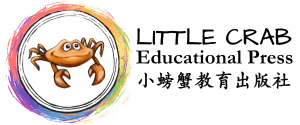
2 Simple Things Every Teacher Should Be Doing (And Why Parents Should Know About Them)
Share
It’s funny when you set out to learn something using the conventional route only to discover that the unconventional route is what ultimately leads you to the knowledge or skill you are seeking. In this month’s blog, I tell you the story of how I encountered two of the best teaching hacks I’ve ever learned, which came to me in a surprising way.
Plan A
A long time ago, before I started teaching English as an additional language in earnest, I took a TESL course (Teaching English as a Second Language) to prepare and qualify me for ELL (English Language Learning/Learners) teaching jobs. I didn’t know it at the time, but the type of course I took wasn’t going to be quite “up to snuff” to get me a job in Canada right away because it didn’t give me enough practicum hours to qualify as having a TESL Canada certification, which is a more stringent qualification.
That said, the course was well-planned and well-taught, and considering it was not very intensive, it still prepared me surprisingly well for teaching overseas. I happily went to China for the second time in my life, moved to Beijing, and gained valuable teaching experience in a vocational type college outside of Beijing in a town called Langfang. At the time, I thought I had found it - one of the first steps on a straight, direct path to my dream career: being a high school Mandarin and Drama teacher.

Dashed Dreams
You can imagine my surprise when, back home in Canada some time after completing my Bachelor’s Degree at the University of Victoria, I had finally gotten into a teacher-education, Post-Degree Program (PDP) at the University of British Columbia and yet, in the middle of the first practicum about 7 weeks in, my long-held plans for the future came crashing down.
In my opinion, this program, which churns out a huge percentage of the professionally certified public school teachers in my home province, was not as good at teaching “how to teach” skills as this little TESL course I had taken years before. In other words, the PDP taught us a little bit about what was in the provincial curriculum, but largely left out best practices on how to teach it, or at least best practices on teaching skills in a more general sense. (The idea was that every teacher is different and is allowed and encouraged to teach the material with their own style - but they didn’t delve deeply into what exactly one’s “own style” could be that would still result in passing the course versus failing).
Plan B
After completing the first term, I left the UBC program, went back to China a third time (this time teaching and living in Shanghai), and after one too-short, glorious year I will never forget (spring 2007 to spring 2008), I returned to Canada because I knew I wasn’t going to live the life of an expat - though I had entertained the idea for a while.
One of the many things compelling me to come home was that shortly after leaving the UBC program I had started the original concept for what later became Little Crab Educational Press’ flagship storybook, Little Byron - Xiǎo Bái Rèn - 小白任, and I wanted to return so I could see it through to fruition.
Plan C…ELTA
I spent a few years teaching ELL in schools in Vancouver, and then it became obvious that my previous TESL certification would not continue to be enough of a qualification because the standards in the industry were (rightfully) changing. So, I eventually rectified the problem by earning my “real-deal” CELTA certification [“CELTA (Certificate in English Language Teaching to Adults) is an internationally recognised teacher training and certification programme moderated and accredited by Cambridge Assessment English (UK).” - source.].
The CELTA course was much more pedagogical than the flimsier TESL course I had taken, but both had given me some foundation as to “what teaching really is”. Several of the courses within the PDP at UBC had been at best cerebral but lacking in concrete, usable skills and at worst, extremely vague or aggravatingly contradictory.
The silver lining to all this was that by returning to the ELL industry and also earning my CELTA, I had built up years of overseas as well as home-turf teaching experience, improved greatly as a teacher, and got much further toward my publishing goals than I likely would have if I had “taken the blue pill” and stuck with Career Plan A.

image sourced from IMDb.com
(Any reason to get a picture of Keanu into my blog is a Good Reason.)
Two of the Best Teaching Hacks I Learned From the CELTA
You must be wondering, then, what my best takeaways were, or at least the points that are literally easiest for you to literally “take away”. I could go into many more things that I found useful about the CELTA, but what I love about the following is that these are skills that are easy to practice and can be used not just for teaching kids, teens, or adults, but for parenting as well. You may even do a version of them naturally already, but learning they have actual names and the differences between the two can really help you get better at using them. They are: ICQs and CCQs.
What are ICQs?
Have you ever been at a kids’ party and tried to explain a game to a group of them, or been at the front of a classroom and tried to explain a task to the class, you finish your explanation and go, “Ok! Does that make sense? Any questions?” and you get a few nods, but mostly crickets? So what would you do next? Would you think “Ok good. No questions. Everyone can start.”? When students “have no questions”, is that a good way to assess that they understood? Generally, no, it’s not. Enter the super useful ICQs: “Instruction Checking Questions.”
Even when people are listening earnestly, often they think they are getting the details but really are just getting the gist. Then when it comes time to break away and start doing the task, the gist turns out to be not quite enough information to perform the task properly. That, and when people actually know they don’t fully understand, they are often afraid to ask in front of the group so they wait until the task has begun in order to ask questions to their smaller group, hoping that someone in it was able to understand and can re-explain it to them. But what if no one truly understood? Suddenly your lesson plan is blown way off course by the extra time it takes to re-explain to everyone.
The art of asking ICQs before you allow students (or your kids) to break away and perform the task you just explained lies in asking binary questions. Here are some examples:
“OK! So! Did I say you need to colour both of the pictures on the paper or just one?”
“What do we do first, glue the stick to the paper, or cut out the picture?”
“Do we wait for everyone in our group to be finished before we move on, or can we start on the next part even if some others are not finished?”
The answers to those Yes/No, A/B types of questions can prevent all kinds of chaos! ICQs work whether you have all the kids yell the answers at you, or when you are instructing kids in smaller groups, in pairs, or talking one-on-one.
Another key point: It’s best to ask them in sets of three, which can be a little bit of a challenge for the teacher because you have to know your own instructions so well in order to be able to pull three distinct points from them to ask, but that just means you are all the more dialed in to your lesson. It’s a win-win.
What are CCQs?
CCQs are “Concept Checking Questions” and they are a little bit harder to form on the fly than ICQs. The CELTA teaches that when you do your lesson plan, you should have at least your CCQs pre-written so you are ready to ask them when the information you just taught is fresh in the students’ minds and you aren’t left going “Ummm….ahhh…” at the front of the room.
Concept Checking Questions allow you to assess how well the students (or your kids) absorbed the core material they need to understand about a topic in order to be able to perform tasks related to it. For example, if you wanted to teach one of the differences between “a” and “the” in English, you might ask “What is more specific? Saying ‘I want a red car’ or ‘I want the red car’?” The concept being checked here is that “the” (the definite article) is more specific than “a” (the indefinite article).
If you want a good write up on how to apply CCQs to teaching ELL, you can check out this article by Sandy Millin. It goes much deeper into training you on how to form excellent CCQs. Asking strong CCQs will leave your students (or kids) feeling confident, inspired and ready to use what they have learned, because their answers to the CCQs prove to them that they are already actually learning it.
My overall point is that these simple teaching tools are applicable to subjects beyond ELL. They can be employed to teach Mandarin Chinese for beginners, intermediates, or advanced learners, as well as any other language or subject like history, culture, science, math and so on. They also work anywhere: homeschool classrooms, private and public school classrooms and so on. For these reasons I am shocked that these kinds of teaching tips and hacks were missing from the post-degree teacher education program at UBC at the time that I was attending it.
So, the next time someone asks you, “Why is Mandarin Chinese so hard to learn?” (or any other subject that is making them bang their heads against a wall) you might want to find out if their lessons are being taught with ICQs and CCQs, or if their teachers are just yelling out “Do you understand?” and quickly moving on despite the blank stares they received. Sometimes it’s not about the material itself; it’s about the way it’s being taught that makes or breaks it being “hard to learn”.
Join us on social media @littlecrabpress or email us hello@littlecrabpress.ca and let us know: Do you already use ICQs and CCQs as a teacher, parent, or both? Were you aware that they have a name? Does knowing they have a name help you to differentiate what questions to ask to confirm understanding? Do you use them only when teaching languages, or teaching other subjects, or do you use them in daily life as well? We are so curious! We’d love to hear from you.
Cheers,
Rebecca
